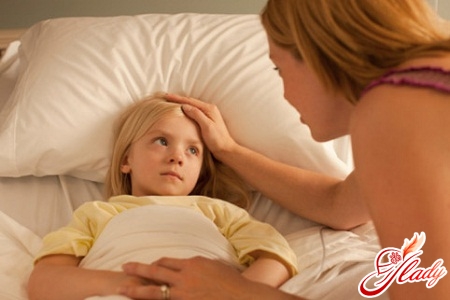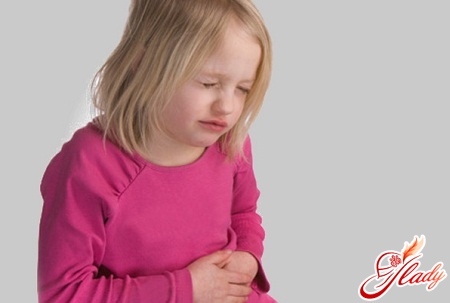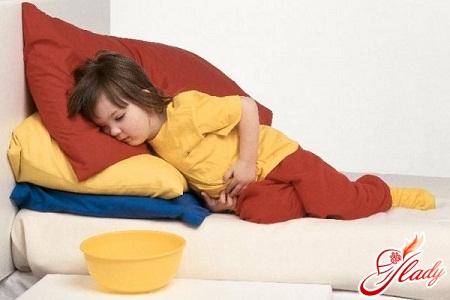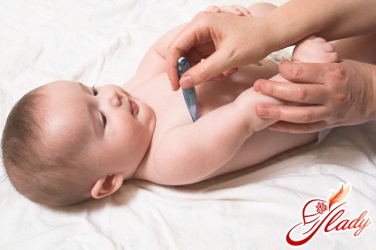 At the children's clinic, in line to see the doctorgastroenterologist, more and more often you can see very small children. Amazing, isn't it? Where does gastritis come from in such little ones? How to treat this disease? And, most importantly, how to prevent gastritis in children? After all, even chronic gastritis in children is no longer uncommon. If you have a child, these questions will probably be relevant for you. This is what we will talk about in today's conversation. So, what is gastritis? As you know, the inner surface of the stomach is lined with mucous tissue. And periodically this mucous membrane is involved in the inflammatory process. It is this process that doctors call gastritis. There are two forms of this disease - acute and chronic. The acute form of the disease is very violent, with pronounced symptoms, the child's health deteriorates very, very much. But the advantage of the acute form of gastritis is that with timely and correct treatment, it disappears without a trace. The chronic form of the disease is milder - the symptoms are less pronounced, and the child's general condition almost does not worsen. However, in fairness, it should be noted that chronic gastritis is most often a person's companion for life. Therefore, you should try to prevent the development of acute gastritis in no case.
At the children's clinic, in line to see the doctorgastroenterologist, more and more often you can see very small children. Amazing, isn't it? Where does gastritis come from in such little ones? How to treat this disease? And, most importantly, how to prevent gastritis in children? After all, even chronic gastritis in children is no longer uncommon. If you have a child, these questions will probably be relevant for you. This is what we will talk about in today's conversation. So, what is gastritis? As you know, the inner surface of the stomach is lined with mucous tissue. And periodically this mucous membrane is involved in the inflammatory process. It is this process that doctors call gastritis. There are two forms of this disease - acute and chronic. The acute form of the disease is very violent, with pronounced symptoms, the child's health deteriorates very, very much. But the advantage of the acute form of gastritis is that with timely and correct treatment, it disappears without a trace. The chronic form of the disease is milder - the symptoms are less pronounced, and the child's general condition almost does not worsen. However, in fairness, it should be noted that chronic gastritis is most often a person's companion for life. Therefore, you should try to prevent the development of acute gastritis in no case.
Causes of the disease
As we know, nothing happens for no reason.And gastritis, like any other disease, will never occur without a reason. And it is very important for parents to know what exactly can lead to the development of gastritis. After all, having such information, parents will be able to try to prevent the disease:
- Infectious gastritis
Not long ago, the phrase “infected” itselfgastritis" would sound absurd. However, today doctors have established that there are a number of gastritis, the development of which is provoked by pathogenic microflora. So a child can become infected through cutlery, shared toys - for example, in kindergarten. Such gastritis accounts for approximately 20% of all cases.
- Improper diet
It would seem that a small child cannot a priorieat incorrectly. But no - many babies eat incorrectly from birth. According to nature's plan, all babies should feed on mother's milk. Including human ones. But very often, for one reason or another, a mother fails to maintain breastfeeding. And it's good if you can immediately choose a milk formula that is suitable for your child. The first year of life is generally the most important - frequent changes in milk formulas, untimely or incorrect introduction of complementary foods. Considering that the child's digestive system is still immature, the load on it is serious. And this is far from the worst thing. What becomes truly scary is when a one-year-old baby, sitting in a stroller, devours chips with gusto, and in his bottle instead of juice or water, a carbonated drink splashes. Did you smile incredulously, believing that this is a banal exaggeration? Alas, no ... Just look around yourself! For example, a fast food cafe - every day a considerable number of parents with children gather there. This is exactly how fertile ground for the development of gastritis is created.
- Binge eating
“A spoon for mom, a spoon for dad.”Sound familiar? Most mothers and grandmothers selflessly stuff their little ones with everything they can get their hands on. They sincerely believe that they are acting for the benefit of their baby's health. But what is the reality? In fact, the only thing that can be achieved in this way is constant overload of the stomach, disruption of its functioning, irritation of the gastric mucosa, its inflammation and, as a result, the notorious gastritis. Chronic gastritis in children most often develops in this way.
- Biscuits, sweets and chocolate
Candies, cookies, chocolate – what is childhood without them?them? However, remember that both cookies and chocolate, and even ordinary caramel significantly contribute to the development of gastritis. Therefore, it is absolutely unacceptable to give a one-year-old baby a candy. Doctors - pediatricians generally forbid giving children any candy at least until the age of three. The same applies to cookies - of course, with the exception of special ones intended for the little ones.
- Stressful situations
You've probably heard that "all diseases come fromnerves". And gastritis very often develops precisely because of stress. Anticipating your objections - like, what kind of stress can a child have - we hasten to assure you: there is no less stress in a child's life than in an adult's. And sometimes even more. After all, those problems that in your opinion do not exist at all, often seem insoluble to a child. Among the most common stressful situations in children, one can note: moving to a new place of residence, changing kindergartens, the appearance of a new family member, conflicts with peers in kindergarten. Especially strong stress is experienced by those children whose parents constantly quarrel with each other. And do not think that a closed door to the bedroom will help hide conflicts from the child. Children are very sensitive to the psychological atmosphere in the family, so you are unlikely to be able to lie to them. And do not forget about another important aspect. What does your child watch on TV? What games does he play? And how much time per day? Remember that even good cartoons and fairy tales in large quantities put a very serious strain on the child's nervous system. And what can we say about aggressive games, of which there are too many these days?
- Food poisoning
In approximately half of all cases of acutegastritis in children is caused by banal food poisoning. And this is quite understandable - toxins act on the gastric mucosa quite harmfully, causing its inflammation. Well, and inflammation, as we remember, is the same gastritis. Therefore, very carefully monitor the quality of the products that your child eats. And pay attention not only to the shelf life, but also to the conditions - in particular, to the temperature regime.
- Other diseases.
Less often, but still there are cases when gastritisdevelops as a result of diseases already present in the child, such as: hepatitis, pancreatitis, cholecystitis. And even if the baby has any sources of chronic infection in the body - for example, sinusitis, caries, nephritis - the risk of developing gastritis also increases several times. In addition, gastritis can be caused by the presence of lamblia and other worms in the body - they significantly injure the gastric mucosa, causing irritation and inflammation.
- Medications.
There is a high probability that gastritis can occurcause various pharmacological drugs. Medicines often provoke severe irritation and inflammation of the gastric mucosa. Of course, a single dose of medication is unlikely to lead to the development of gastritis. But systematic - for three days or more - use of certain drugs - is very likely to happen. Unfortunately, in some cases this cannot be avoided. For example, if a child is sick and needs a course of treatment with some aggressive drugs. As a rule, doctors always remember the threat of gastritis and try to prevent it. But very often it is the parents who are the culprits of such gastritis. How often do adults begin to treat a child on their own, giving him certain drugs. And as a natural result - gastritis does not take long to appear. That is why in no case should you independently decide on the need to treat a child with drugs. All drugs should be prescribed only by a pediatrician.
- Genetic factor
As is known, many diseases havea tendency to be inherited. Gastritis is no exception to this rule. If the mother, father or any of the child's close relatives suffers from gastritis, the slightest provoking factor is enough - for example, a small error in the child's diet - and gastritis will immediately make itself known.
Symptoms of gastritis in children
So, what are the reasons that can provokedevelopment of gastritis in a child, we have figured it out. It is equally important to know what signs may indicate gastritis. After all, the sooner parents notice the problem and show the child to the doctor, the sooner treatment will begin. And the sooner treatment begins, the less harm to health and unpleasant moments for both the child and his parents. Symptoms of gastritis may differ depending on the age of the child.
- Painful sensations
So, in very young children the main symptoms aregastritis is anxiety and crying. If the baby cannot speak yet, he will simply kick his legs, pull them up to his tummy, hold his stomach with his hands. If the baby is old enough, he will probably complain to adults about pain in the stomach area.
- Lethargy and apathy
Listing the symptoms further, one cannot fail to mentionabout lethargy and apathy. The child begins to be capricious, refuses usual entertainment - watching cartoons, playing games, walking. He will increasingly strive to lie down. If you notice this in your child, do not ignore this condition under any circumstances. After all, the symptoms of many diseases, and not just gastritis, also include apathy and lethargy.
- Changing the color of the skin
The child's pale skin, dark circles under the eyes -are also very distinctive symptoms of gastritis. Nausea, vomiting, coating on the tongue. If all the above symptoms most often indicate a chronic course of gastritis, then nausea, vomiting and a white coating on the tongue are most often signs of an acute course of the disease. As already mentioned, acute gastritis always occurs in a pronounced form. Remember that the symptoms of gastritis can vary in each specific case. Therefore, in all cases when you doubt, be sure to seek help from a doctor. Only a doctor can correctly assess the child's condition, diagnose the disease and prescribe the necessary treatment.
Treatment of gastritis in children
Treatment of gastritis in children largely depends onwhat causes caused the development of the disease. Successful treatment is possible only if the causes are eliminated. Otherwise, the disease will return again and again. As a rule, in most cases, doctors manage to establish these causes. But there are general principles that are relevant in all cases. Without their observance, treatment is unlikely to be successful. So:
- Psychological atmosphere
Remember that all kinds of stress are the mostfertile ground for gastritis? This means that in order to treat gastritis, all these stresses must be eliminated. It is necessary to create the most comfortable psychological environment for the child.
- Child's Diet
Treatment of gastritis is simply impossible withoutreviewing the child's diet. Consult with your doctor - he will help you choose a menu that is ideal for your child. In addition, monitor the feeding schedule - the child should eat at the same time. And this is relevant not only for the period of treatment. Do not give the child any medications under any circumstances. Drug treatment should be carried out exclusively under the strict supervision of medical personnel. And, of course, only as prescribed by a doctor. This is why doctors prefer to treat gastritis in children in a hospital setting. We recommend reading:









